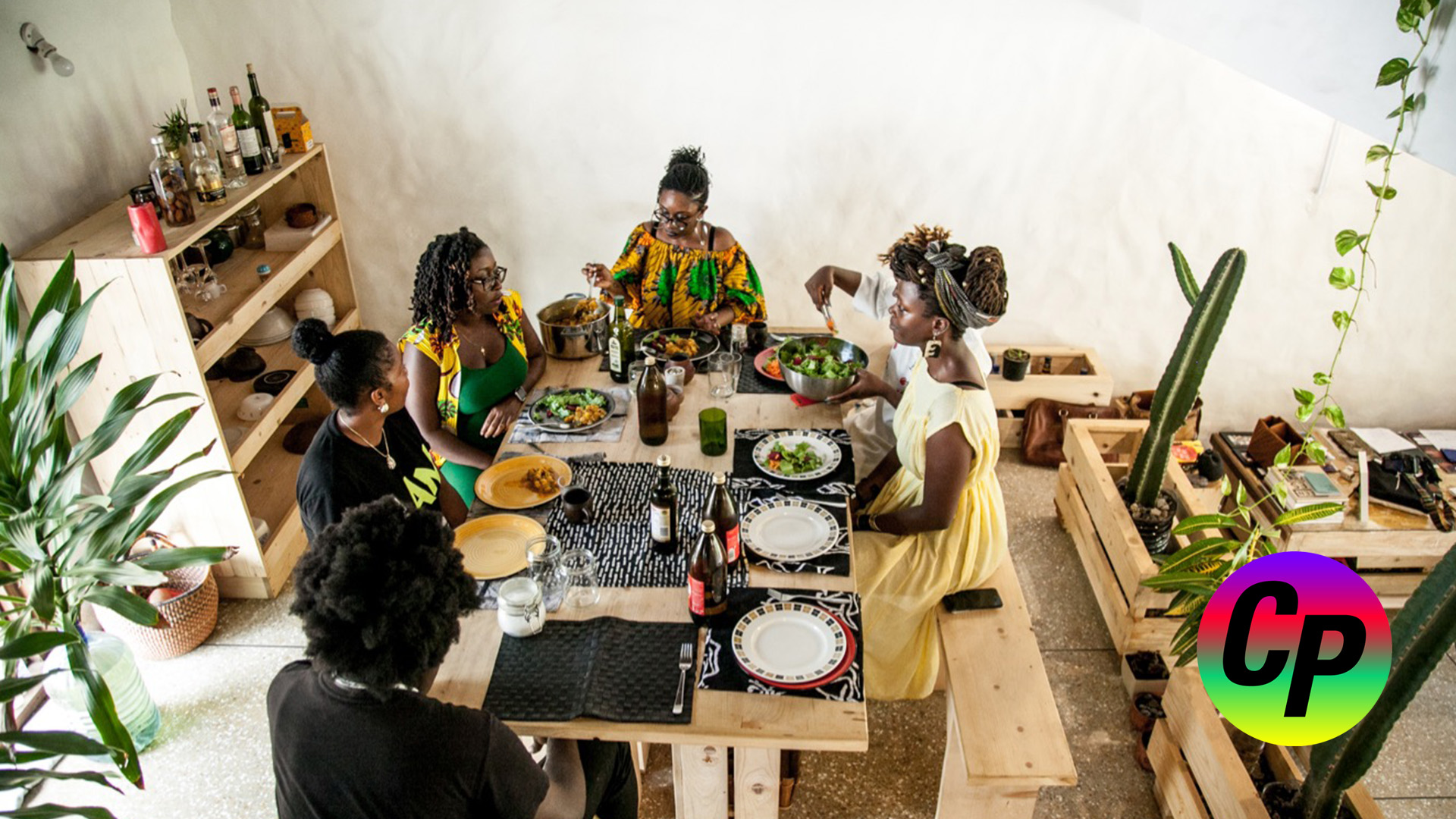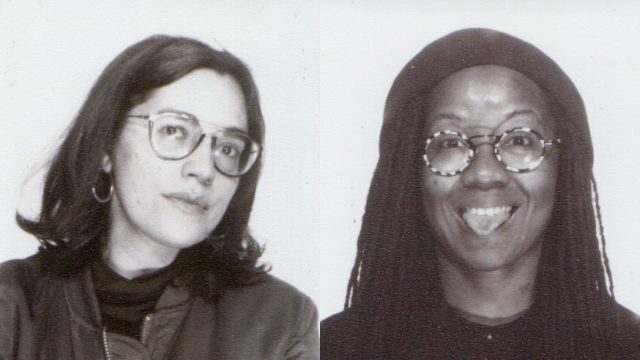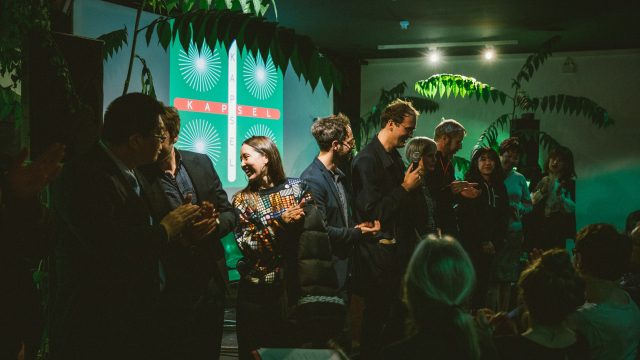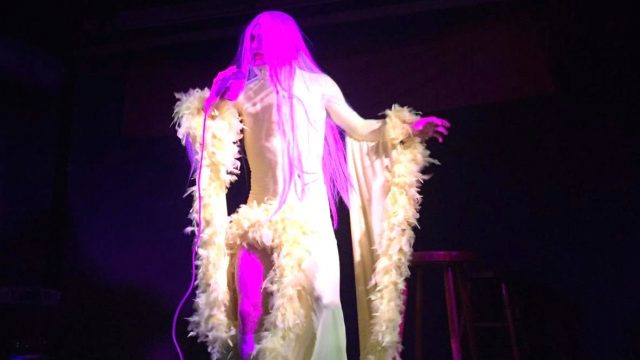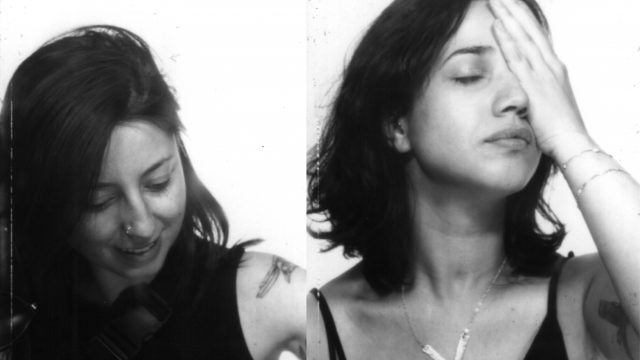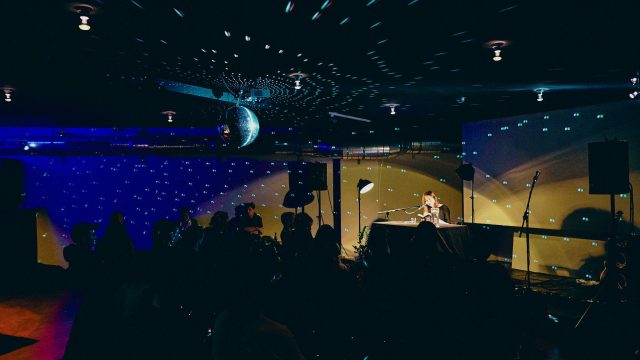© Selorm Jay
Archiving the Mo(ve)ment – Online Edition presented by Okhiogbe Omonblanks Omonhinmin:
This series looks into creating narratives of what it means to be Black and African today, as a collective practice. As part of a wider project (TAC), Omonblanks facilitates and documents multifaceted and collaborative oral histories of lived experiences of Black and African people on the continent and in the diaspora. This chapter, taking place in the context of COLLECTIVE PRACTICES – focuses on the current pandemic moment. Previously planned as a weekend gathering of conversations, screenings, exhibition, music and food – the project now takes shape in the digital space.
With their long term conversation and archiving initiative, one of TAC’s aims is to expand narratives of African and Black identities, coming out of the multiplicities of African and Black communities. To the present day, widely available knowledge and attitudes about African people are so entangled with stereotypes, often shaped and told from outside of the continent, that they frequently remain confused or clichéd, even for the protagonists themselves. The overall documenting and archiving project is both a critical intervention, as well as a recapture and return of ownership of narrative, and an increase in volume, diversity and visibility of stories told by Black and African people of various backgrounds.
Who knows what? Who doesn’t? And why? This exercise allows us to visualise and understand how concepts of knowledge, scholarships and science are intrinsically linked to power and racial authority. What knowledge is being acknowledged as such? And what knowledge is not? What knowledge has been made part of academia agendas? And what knowledge has not? Whose knowledge is this? Who is acknowledged to have knowledge? And who is not? Who can teach knowledge? And who cannot? Who is at the center? And who remains outside, at the margins? (..)
These questions are important to ask because the center, which I refer to here as academia center, is not a neutral location. It is a white space where Black people have been denied the privilege to speak. Historically, it is a space where we have been voiceless and where white scholars have developed theoretical discourses that formally constructed us as the interior ‘Other,’ placing Africans in absolute subordination to the white subject. (Grada Kilomba: Plantation Memories: 25, 26, 2019)
In collaboration with COLLECTIVE PRACTICES, Omonblanks will document conversations with people from the Black and African communities living in Berlin, and make connections between Berlin and Accra/Lagos. And while not being able to create a physical gathering at ACUD, the project will involve many different protagonists into online conversations, discussions and performances – that will all form part of the multifaceted narratives and the growing archive by TAC of Black and African perspectives.

© Sade Farinde
Planned Activities June – September
Conversations: throughout JUNE
The conversations with Berlin-based Black and African people of various backgrounds examine lived experiences during the current pandemic moment. How are we experiencing this period? What are we learning? What visions for the future are emerging? How are we addressing struggles and anxieties? What roles do collectives and community play at the current moment? The Berlin conversations form part of a wider series of conversations held with people internationally (https://www.instagram.com/omonblanks/).
 Artist Studio Visit – Visual Narratives: June 30th (Tuesday)
Artist Studio Visit – Visual Narratives: June 30th (Tuesday)
Photography is a way of storytelling. We meet Accra based visual artist Eric Gyamfi in his studio for a unique visit behind the scenes. Eric Gyamfi uses photography as a tool for social commentary, storytelling and documentation of the moment, as a mode of communication and social critique. The studio visit allows for a a wider audience to explore his images and the stories behind them, and interact with the artist.
The event
Discussion – How do artists and cultural workers live through and after the pandemic? July 31st (Friday)
This conversation brings together Berlin-based artists and cultural workers with colleagues living outside Germany to reflect together on strategies to survive during times that do not allow for an audience or community to come together in a physical space. With shows and performances cancelled indefinitely, how are we as a creative community coping? How can we support each other collectively? What are our plans for the future? How does the current moment affect our creative practice? The discussion is open for the public to ask questions, contribute ideas, and interact with the speakers.
Exhibition: Archiving the Mo(ve)ment
* September 11th / 12th / 13th (Weekend) *
The exhibition Archiving the Mo(ve)ment, running from 11 – 13 September, brings together a time capsule on Ghana in the 1950s with the threads of current conversations that have been explored as part of a four-month-long project by Okhiogbe Omonblanks Omonhinmin during his period of isolation in Accra, Ghana, in the context of his online residency as part of the COLLECTIVE PRACTICES programme.
Exhibition – Conversation Capsule
Documented conversations by Omonblanks will be exhibited. These conversations explore Black and African perspectives, those of the African diaspora, and those within the various intersections. All conversations form part of the multifaceted narratives – documented in the continuously growing TAC archive.
Exhibition – Time Capsule
The audience is invited to a multimedia time capsule, transporting the attendees to Gold Coast/Ghana in the 1950s. This includes fragments from the country’s music and visual archives, leading back to the scene of the independence movements, remembering Ghana as the first African country that was freed of colonial rule.
Artist Talk (September 11, Friday)
A conversation between film curator Jacqueline Nsiah as the moderator and Okhiogbe Omonblanks Omonhinmin, which will lead into a Q&A with the audience and an official opening of the exhibition.
Music and Food (September 11 & 12)
Food and music or sound are ways we continue exchange and interaction as a people, and are a part of the exhibition concept. We invite visitors to eat together and listen to music, before or after the exhibition visit. A West African meal will be available at affordable prices.
Discussion – Narratives as Collective Practice – The Importance of Documenting & Archiving
* September 18th (Friday) *
With a panel of Black and African storytellers, curators, activists and archivists based in Berlin we talk about the practice of documenting, exhibiting, sharing and producing black stories, particularly in a white European context.
The Event
If you are interested to take part in a conversation, you can reach out to Omonblanks directly: omonblanks@gmail.com
COLLECTIVE PRACTICES

© Cate Lartey
